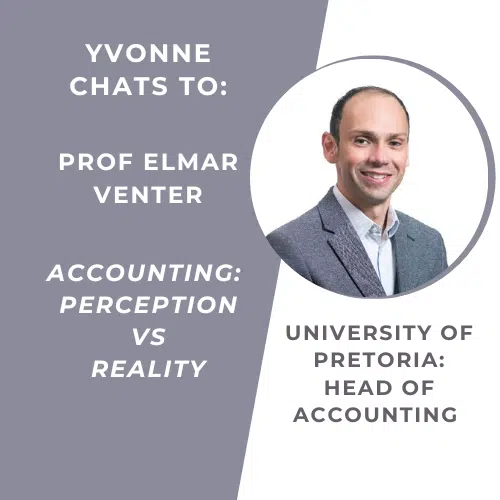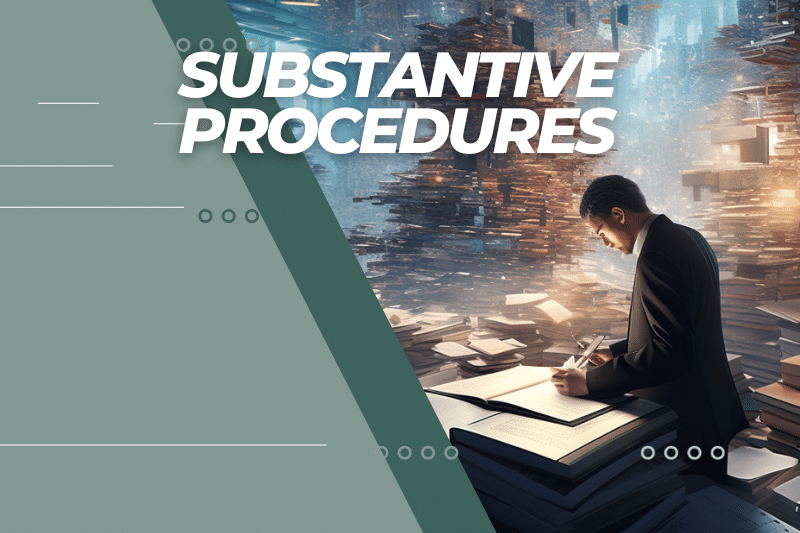I knew my qualification journey was going to be tough, but until I was actually ‘in’ it, I had no idea what it would take from me. I think it’s similar to having children, (so I’m told!). You think you know what you’re in for, and then they arrive… and rip your life and sanity to shreds… and yet you’re glad you did it!
I’ve lectured CA-route students for over a decade now too… and this sentiment is echoed by most students and colleagues I’ve come across over the years before and since then. Third year students hear the trauma-induced panic from CTA students, but can’t quite understand why they’re complaining so bitterly… and then they graduate and start their first few weeks of CTA… and realise that they’ve never felt so stupid, feel like a fraud for standing in front of an audience to graduate from their degree and sincerely wonder what on earth they were thinking and how long ago it was that they felt they were in control in any real sense.
[expand title=”Who are the forgotten ones?”]
For various reasons, students move away from the CA(SA) path. Looking at statistics, there are under 40 000 qualified CA(SA)’s. Yet, there are THOUSANDS of students who start their Accounting degree with a CA(SA) in mind EVERY single year! Where are all those people!? Finances, academic struggles, life and family responsibilities… all of these contribute to the life and career choices of those who start their first year Accounts degree thinking of getting those four letters behind their name.
The intense dedication and focus required to complete this journey means that those who change direction or move paths seem to ‘fall away’ and disappear. The CA(SA) route is so narrow and so pre-defined that it really is an ‘all-or-nothing’ journey. One step off the prescribed path sees you in a jungle of choices, challenges and a sense that you’ve ‘lost’ your way. The people who used to surround you no longer do, because your paths are now different, you’re not in class together, or at work together. Your discussions are different, your schedules, priorities… these don’t align anymore. It’s like leaving high school and everyone is going to the same university to study the same thing… except for you!
I’ve spoken to dozens of students about their experiences with considering moving off the path, and those who’ve already made the move. It’s these people I want to talk about here.
[/expand]
[expand title=”Does it mean they’ve given up?”]
Our society today is dead-set against ‘giving up’. Sports adverts, studies, advertising, marketing and movies continually sends us the message that you should NEVER QUIT, NEVER GIVE UP… which clearly says that if you do… you’ve “lost”. There’s no disclaimer that says you should be smart about your choices, reassess your life goals along the way, take family and responsibilities into account. The message is simply “NEVER QUIT”! This leaves no room for life changes, priority or goal changes, changes in circumstances that are beyond your control, or simply outgrowing a choice once you’ve gotten a better idea of what it actually entails and realising it might not resonate with you as much as you thought it would.
So, no. I don’t like the words ‘giving up’. I don’t think it’s a fair statement, with all the associated emotions and images that we’ve given it. Making the choice to change paths requires a HUGE amount of thought, courage and is a very emotional decision for both the person involved and their family.
The students I’ve spoken to during their decision-making, or after, are generally guilt-ridden about what this decision says about their character, what people think of them, how much of a failure they are (especially if their reason for changing paths was because they’d failed something… generally CTA). Their confidence is shattered, and worse yet… the path that they felt was laid out for them has evaporated, and now they have to try find a new one, while they’re feeling worse than they ever have. They felt their future qualification defined them… and now it’s gone.
[/expand]
[expand title=”What drives the intense need to stay on the CA path?”]
The CA(SA) qualification is highly regarded and offers some really great career opportunities. Financial stability, mental challenges, and ‘the world at your feet’. These opportunities would naturally be very tough to walk away from!
In talking to a lot of students considering their future and whether to continue on the CA(SA) path, (and often this is when they’ve failed CTA more than once), I ask them to consider whether their decision-making would be easier if they could make it entirely by themselves and NEVER have to go back to their fellow students, colleagues or lecturers and tell them they’ve decided not to continue. Often, this comment floods the students’ face with relief… it would be easier to make a different choice, because the people who’re expecting them to continue, or who are continuing themselves won’t see them as a failure. They won’t be judged, or feel stupid for going in a different direction after so many years on the CA(SA) path.
Money and status have always driven students to the CA(SA) path. Families often push their children towards the qualification as a ‘sure-fire’ way to create the type of financial stability that they may not have had themselves, or that they’ve had themselves and want the children to continue to bring the family. In the economy we live in, it’s easy to see that a career choice with almost-guaranteed employment is very desirable. Sadly, the qualification isn’t really understood at the time these choices are made, and this has a lot to do with academic struggles, disillusionment, and the feeling that “this isn’t for me, but I can’t change now”! Also… they’ve put SO much work into it by now, how could they think of walking away from that? How could they consider changing their minds?
The fact that the path is so narrow, that everyone has to follow the same steps to qualify also means that the people pursuing this goal are all ‘in the same boat’. They study the same thing, at the same places, work for a limited number of places, and it creates a very ‘close’ community of people who understand the challenges of their fellow strugglers, because it mirrors their own. This is very motivating and comforting, but it can also influence the decision-making over whether to stay in there or change direction. There’s such intensity, such a drive and need to succeed, the motivation that’s meant to bolster, support and carry you can become the very thing that shames you into staying there. “I CAN’T give up!” is something I hear very often.
[/expand]
[expand title=”What makes the CA qualification so unique and challenging?”]
The CA(SA) path is designed purely to prepare you for qualification as a CA(SA). Your steps, goals and choices are laid out for you, and have a very specific beginning and end. This is NOTHING like real life, where you have to make decisions all the time about what should come next, which choices to make, where to work, what to study etc, and HOPE that these will lead you to success. I wrote an article on some of the reasons why it’s so challenging, it might explain some of the reasons it’s so tough.
Consider, for example, a Business Management degree. It gives you knowledge and skills, which will be valuable for your career… but it doesn’t define where you will or should work, the industry, the company, the role you might play in that company… that’s all up to you! You decide what you do once you’re done with the degree… with little or no guidance or input from anyone else. The CA(SA) qualification, however, prescribes every move you make, and as tough as those steps are… it’s also really comforting that you don’t have to make those choices yourself to get to success. As long as you’re still on that path, as long as you’re still on track for that big finish (those four letters!), you feel assured of future success.
If you’ve had the reassurance of that journey for years, and then move off the path, you instantly realise that you’re on your own. You now have no community or group or organisation to tell you what your alternatives are. Finding information about whether CIMA, ACCA, SAIPA, CFA are right for an ex-CA(SA) route student is nowhere NEAR as organised and available as the information about the CA route.
I often see the frantic struggle of students looking for an alternative, organised path they can switch to, before they finalise their decision. (Often it’s CIMA, SAIPA or ACCA) What I don’t think they realise is WHY they feel so alone and confused. I don’t think they realise that they’ve gotten a huge sense of comfort that their qualification path is so defined, and the huge options available outside of that can be really daunting.
Moving off the path means you have to make your own decisions about where to work, the types of jobs to apply for (that can look NOTHING like articles), your studies… and often, more alone that you’ve been up to now. The community you were so close to is continuing on the same path, and you’re looking at changing paths… with a lot of paths open to you, which do you choose? What path of work will you follow? Who will help guide you?
[/expand]
[expand title=”Changing qualifications quickly can be like a rebound relationship”]
Think of a long-term relationship that you’re thinking of leaving, or have just left…
You have invested a LOT (financially, emotionally, time, sacrifices…). If you’re think of leaving the relationship because it’s not right for you, you are in turmoil. You have mixed emotions. Stay? Go? What’s best for the future? Can you make it work if you try harder? Can you change? Can they change? Perhaps give it some more time? What will people say?
You’re not used to being alone. It’s been so long that you’ve been in this situation, that you wouldn’t know how to be alone. It’s scary, lonely, and what if you NEVER find anyone else? In some cases, this fear of being alone may be the biggest reason you decide to stay in the relationship… even if you’re not happy. The fear of the unknown is greater than the need to leave the relationship.
One of the risks? Rebound relationships. Either you’ve already ‘lined up’ your next relationship candidate, so you know you’re moving from one relationship to another without needing to be alone… and that makes you feel better about leaving. Or you try find someone else really soon after leaving the relationship… and latch onto the next person who crosses your path. You’re used to being committed… you want to get back to that.
Now think of the qualification you’re thinking of leaving, or have just left…
See the similarities?! Most students who are thinking of shifting qualifications have been working towards it for a long time. Intensely. Obsessively. You’re not used to being without a powerful goal. You’re not used to NOT having a specific, defined, BIG path ahead of you. You’ve gone from a road, to wandering around a forest, wondering which way to go, how to navigate on your own. That’s EXTREMELY uncomfortable. In some cases, may actually prevent you from leaving. You’re so scared of the unknown, that you’d rather stay on the path, then risk making decisions on your own. The answer? FIND ANOTHER QUALIFICATION QUICKLY!
Rebound qualifications?
I get messages almost DAILY from students wanting advice on what qualification to move to. Which is ‘better’? Which is ‘equal’ to the CA-route? Which will guarantee them the same earning power? Which will make them as successful as they were hoping the CA(SA) would make them? CIMA? ACCA? SAIPA? CFA? MBA? Most of these students haven’t left their CA studies yet… they’re already looking for the next thing to jump into as fast as possible, so they don’t lose time, or momentum.
Take time to ‘heal’ and get perspective
My worry is that the urgency to find another qualification as quickly as possible, means that you’re not making objective decisions without considering what their actual goal is. Their goal has been QUALIFY AS A CA(SA). Not a career. Not a job. Not a lifestyle. Not a business or industry. Just the qualification. If you have a goal… beyond ‘just’ the letters… you will be more able to step back, and assess which option will get you closer to your goal. You will be able to pick the path that will get you where you want to be. Work backwards from your goal.
The fact that so many people ask me which is better for them… tells me they’re scared to be on their own, scared to find a goal themselves, and scared to not have a path set out for them.
My advice? Take some time to heal. Breathe. You’ll lose more by jumping into something that may be wrong for you, than by taking some time to do some thinking. Look at the experiences, topics, industries, lessons you’ve been exposed to… and think about whether they still lead you to the same place. Is there anything that you’ve found that excites you? That totally bores you?
[/expand]
[expand title=”I can’t tell you what’s right for you”]
This is tough to hear… and I’m sorry I can’t give you the answers you need. I don’t know you, your life, goals, work, career, strengths and weaknesses… I can’t tell you what’s right or wrong for you. I can’t tell you what will make you successful.
All I can do is give you some stuff to think about… so you can make decisions for yourself. The scary news? The first decision you make might not be the ‘right’ one. It might take a few changes before you find your ‘thing’. You might find that you never get a qualification at all. You might find that you get a whole bunch of them! You might find that after you’ve taken time to think and have space… you decide to go back and pursue the CA-route.
[/expand]
[expand title=”The good news?”]
There is no reason that your decision will affect your success in life. You will take your strengths and abilities and competencies with you, no matter what you do or where you go. No matter what your decision is, the knowledge you’ve gained, your perseverance and determination will serve you well.
Life is what you make it, and there is always more than one way to achieve success. It will be defined by you, not the letters you have behind your name. The strength you show by dealing with tough decisions says a lot about your character as well. These things will serve you well where ever you go.
Although you may be worried, confused, you are not alone. There are many before you who have changed their paths, altered the idea of what their future may look like, have gone through this decision. Do not feel guilty for making a decision that is right for you.
I have spoken to many students who have left the CA path, and of those I’ve spoken to, the paths they’ve found for themselves, their lives and work, though different to what they thought it might be… are fulfilling and exciting. They do not regret their decision and are happy that they had the courage to make the right choice for them. Some very exciting careers have found them.
[/expand]
Conclusion
Considering leaving your CA plans behind you, for whatever reason, is unbelievably tough. For people who have made that decision, I respect the amount of emotional and mental energy and difficulty that went into that decision. I respect the tough decision and the difficult choices that you’ve had to make after all the effort and work that you’ve put into the journey.
For those of you struggling with the decision (and there are always students out there who are going through this), there are so many things to consider, so many if’s and when’s, “should I” and “what if’s”. It is an incredibly tough choice, for both you and your family.
Please understand that I am not encouraging students to give up their dreams, or step away just because it’s “difficult”. I am not saying that the effort and difficulties of the qualification are not worthwhile. The perseverance and determination does pay off. As tough as it was, I am really happy that I stayed with my journey. I am delighted every time that I hear of past students who move past their next qualification milestone, knowing how tough the journey is.
I do know, however, from students who confide in me, how hard it is to feel ‘forgotten’, or feel like failures for taking a different path. For those who do make different decisions though, I want you to know that there is support for you too. You are not, and will not be forgotten. Your efforts and decisions and journey is not in vain. You are respected and I await news of your success with just as much excitement.















8 Comments
Hi Yvonne,
I am one of those forgotten ones. Long story short, I started my articles in Jan 2014 and it was so terrifying at first. For 6 months you do not know what you are doing. It was like learning to swim in rough seas. After that you settle. I was signed for a 5 year contract. After 1 year and 9 months, I moved out of that stream. I changed my direction not because I was not able to do the whole CA route, but because at that moment I (and my health) could not handle the torture. Planning and scheduling from the firm’s side was not where it should have been. Also I still studied at that moment. Yes that is a norm to be studying and doing your articles, but still doing your degree and being discriminated because of that fact, was not nice. I had to work 10 x harder than all the other to still gain the skills SAICA required.
So I decided to change it. I am an assistant accountant learning the other side of the business to hopefully use it when (and a very big IF) I go back. At this point I would not go back unless I am finished with the studies but we will see what happens. I lost a lot of friends along the way, but also gained better friends who despite my unique path, still see me as competent.
So thank you for all the insight. Good luck to all the other out there.
Janien,
Thank you for your story.
It takes a lot of guts to change paths.
Studying and working together is so painful 🙁 I’m not sure what all your circumstances were, but it does sound like you had some nasty times. I’m sorry.
Are you considering furthering your studies? There are quite a few other quals that can give you the skills and knowledge to further your career. We tend to think that it’s CTA or nothing… but that’s SO not true. 🙂
Hi Yvonne, I have taken 2 of your online classes and love it!
Anywho on the serious topic… I am on my 3rd Level of my Bcompt and although I am very excited and can’t wait to graduate I am so afraid of what comes next? Why am I so afraid? Well I don’t know what to do after that.
I wanted to be a CA so bad however I never got the chance to do articles and its actually too late now. Unless a firm can take me on with the same salary…
There are so many paths out there but I don’t want to make the wrong choice. I have been looking at ACCA, but I don’t know much about it and the CA’s that I know does not really acknowledge it. I feel lost and confused!! Please could I have some advise? What can I do after my degree with the resources I have and still be acknowledged by firms. I dream to be a Financial manager or CFO.
Hi Monica 🙂
I’m really glad you like our online courses! We put so much love and passion into them, and we really want our students to take that out of them too.
I totally understand your concerns. Truthfully, this is something that EVERYONE, (regardless of whether they qualify as a CA or not), will struggle with. I promise you! No one in life gives us a manual or textbook to tell us what the ‘right’ choices are. We’re so used to someone else (the CA profession mostly), that we are not used to making decisions outside of that. Trust me… even when CA’s qualify, they now have the same choices and challenges ahead of them. Stay at the same firm? Move to another firm? Start their own practice / consulting business? Teach? Internal Audit? Find a job in commerce? You will never know the ‘right’ choice. You have to make the best of the information that you have at the time, and talk to people, gather more information. Also… realise that a decision you make now may be different to one that you make a few years later. So relax. You don’t have only ‘one shot’ to make a success of this.
ACCA in South Africa is tricky. Regardless of how good the qualification is… it isn’t well-recognised or well-remunerated by local employers. It wouldn’t be my first choice. If you’re looking towards financial manager and CFO, I’d probably look at CIMA. Their focus on financial management and the practicality of their higher levels is a more natural fit.
Remember also, though, your success is not entirely dictated by your studies. Finding a great company with your degree… (and it’s a good degree!), working in accounts towards financial manager level is possible too.
My concern is that students have a tendency to think that they have to ‘collect’ studies to be successful. Your studying should match your career choices, so the more thought you can give to where you want to be, the easier it is to decide what path to follow. Although I absolutely believe in the power of study… collecting qualifications for the sake of it, in the hope that it inspires the career choice is tricky… especially if you’re changing your plans.
Not as helpful as you may like… I know! But I’m afraid there’s no book for this stuff!!!
Hello Yvonne
Thank you for this useful resource and for sharing your experiences about your journey. I have read many articles of yours and i think we as students (especially from UNISA) need a person like you to help us gain valuable information along our journey.
I would just like to ask a question regarding my (and possibly others’) situation. I am currently doing the Bcompt degree through UNISA, but I have decided that I would not like to continue along the CA path. I know that you have written about this in your article about the “forgotten ones”, but i would just like to ask for some more guidance in this regard.
I find it very difficult to find information regarding other career paths i could follow with the Bcompt degree apart from the CA one, and i would just like to know about the other options there are and the requirements for those.
Your help will be greatly appreciated.
Kind regards
Katrina
Came across this from the UK – several years after the fact!
I’m AAT and ATT qualified. I work in a small practice in the UK, outside London.
I’m studying CTA at the mo and I am really unmotivated, mainly by two things: the sheer volume of material to learn; and the frustratingly opaque way the exams phrase questions which are not realistic (since in the real world we would spend a day or two getting all the precise facts from a client, not having to decipher one email from them!). I took my first CTA exam in May 2022 and failed spectacularly (33%). But the worst part was I didn’t feel bad or disappointed that I failed. I just shrugged and thought, “whatever”.
I’ve got exam 2 in November and then deferred the third/final case study to May 2023 once I realised there was zero chance of my being capable of sitting two exams within 3 days next month!
I just don’t feel I actually want it that much anymore, or that I even care about obtaining it. My employer has paid for the training though, so I’d have to pay them back which I cannot afford to do, so as a consequence I do feel trapped.
Still unsure what to do. I want to attempt each exam once, but if I do fail all three, I think that’ll confirm for me that it’s beyond my ability and I have no desire to continue. I’ve been studying pretty much since 2015 and feel quite jaded by the whole thing.
Your post is very thought-provoking and I have taken away some great points and things to reflect on, so thank you.
Thanks for your comment. You’ve had (and are having!) a really interesting journey! In terms of your study and exam performance, I can probably help you with that. Email me at yvonne@accountingstudyadvice and let’s see if I can add some value there.
Feeling ‘trapped’ by financial assistance is something I’m very aware of. I know large organisations who do this, and I call their students ‘professional students’ (and they have HUNDREDS of them!). They fail year after year, are no longer actually focussing on the studying, feel increasingly demotivated and honestly, they’re only going through the motions because they need to keep the job and don’t want to repay the assistance. It’s pretty heartbreaking. So I can really understand that frustration. I’m not sure what the solution there is. Repaying studies can be expensive and feel like a ‘waste of money’, but the freedom that comes with not being ‘forced’ to continue something that you’re no longer invested in, may be worth it.
For someone in this situation (and I know there are MANY who are questioning their paths!), I would probably consider the following:
– Is it the goal you’ve mentally disengaged from. ie: You actually feel like you no longer need / want the qualification the way you did previously?
– Is it the continual lack of success at the exams themselves?
– Has something else in your life changed that you actually can’t focus on this stuff the same way?
– Is it the constant grind on a daily basis, the sacrifices, the never-ending exam deadlines, study sessions etc, while not actually FEELING any difference or improvement that makes you feel you’re actually going to get this right?
While all of these feel fairly similar, and all of them probably apply to a lesser or greater extent, finding THE thing that’s the dealbreaker is really valuable. If the goal itself has changed, that’s positive (although it may not feel like it!), and if you do ‘walk away’, you’ll feel freedom and find the mental energy to find your passion and next season. If it’s more about the fact that you’ve been struggling and feel like you can’t actually do it… that’s tougher. Most of the students in this position have taken a lot of years to recover from the feeling that they’re somehow ‘not good enough’. It’s a monkey on their back that impacts their career decisions, opportunities that they won’t pursue, their impressions of what they’re capable of doing… all these subtle things that stem mainly from that constant feeling of “I couldn’t do it, and that means that I’m not quite good enough”. Again, my concern here is more about the impact on future career decisions, and the insidious little inferiority complex that I’ve seen in SO many of these students.
It’s a really tough situation, and I’m glad that you shared it, because I think it’s a quiet challenge that a LOT of people struggle with, but don’t really want to talk about. Our society is weirdly toxically addicted to the idea of goal achievement, regardless of the impact it has on you, the continual relevance or what it costs you. I’d love to balance that out a little more 🙂
So, thanks for sharing 🙂